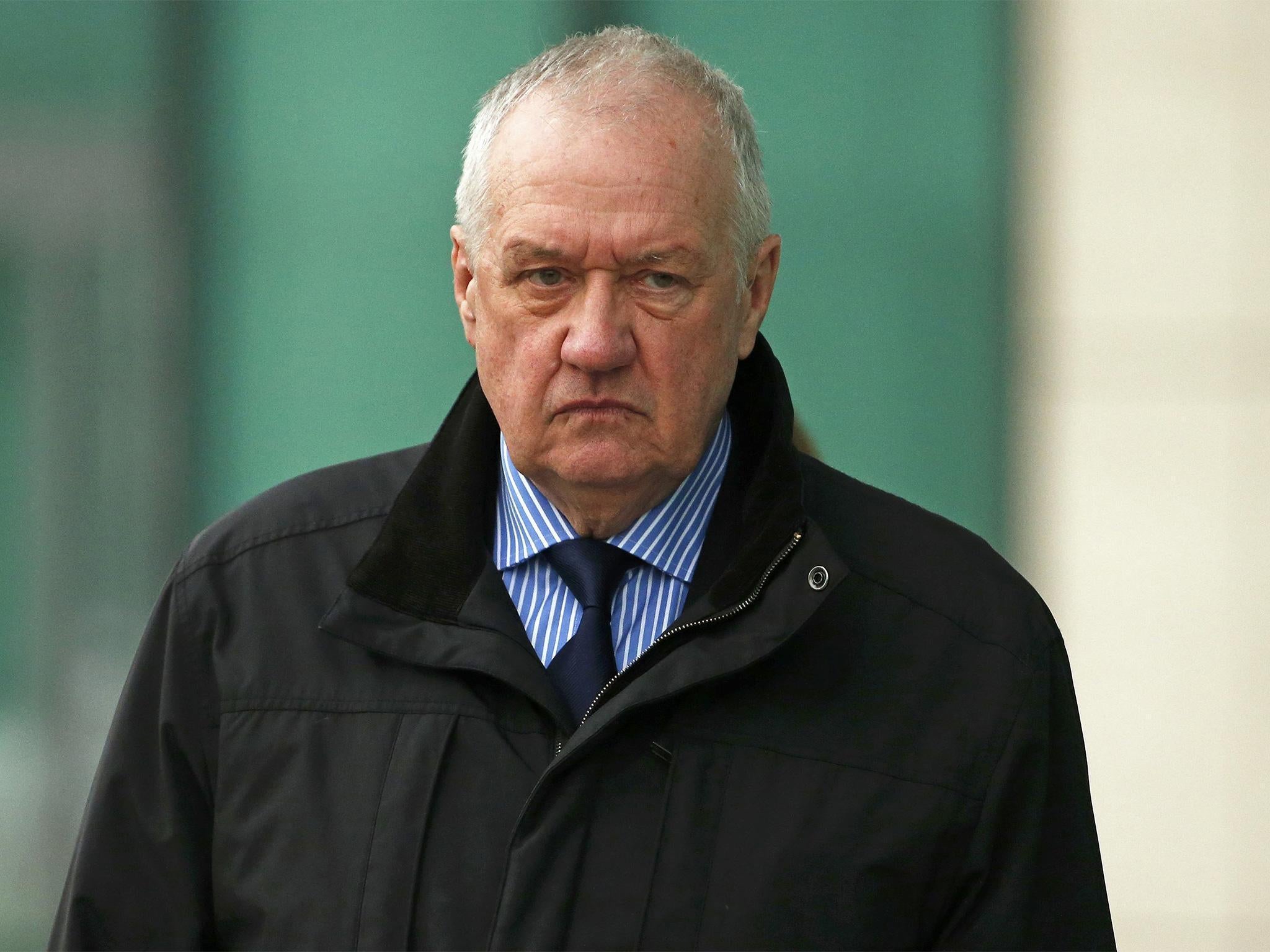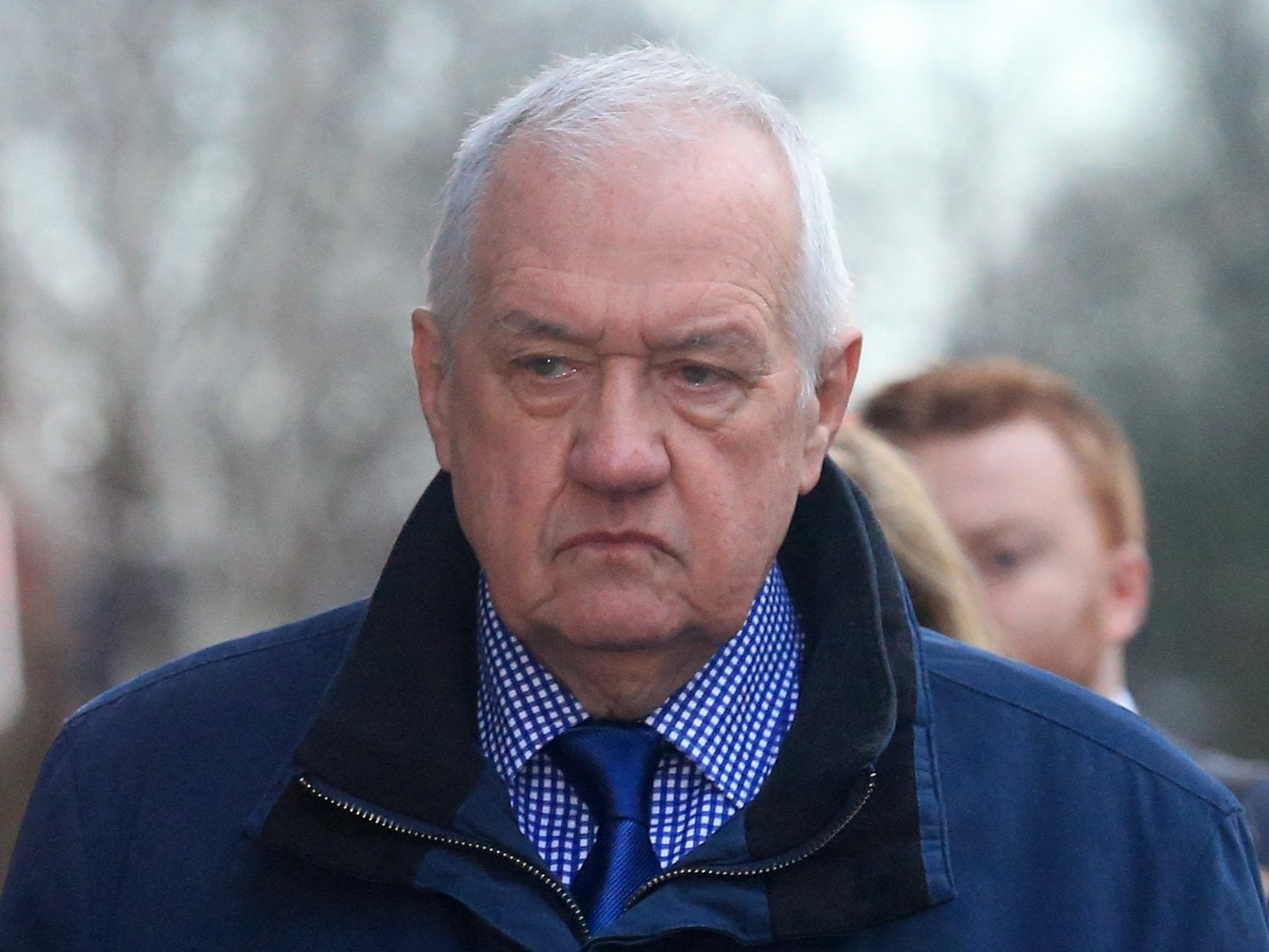Hillsborough trial: David Duckenfield 'unfairly singled out' for manslaughter prosecution, defence claims
Prosecution says match commander's 'extraordinarily bad' series of failings led to fatal crush

David Duckenfield has been “unfairly singled out” for prosecution over the Hillsborough disaster, his defence lawyer has claimed.
The match commander “was not equipped with special powers to anticipate things that everybody else didn’t,” Benjamin Myers QC told a jury at Preston Crown Court.
He added: “It can hardly be fair to judge Mr Duckenfield by different standards from everyone else.
“The prosecution are blaming him for ... events that can’t be attributed to the fault of any persons in particular.
“What happened on 15 April 1989 was brought about by a combination of factors great and small, some with their roots in events years before and some that emerged in the hours and minutes before disaster struck.”
The prosecution had previously told the court that Mr Duckenfield’s “extraordinarily bad” failings as match commander was a substantial cause of the deaths.
Richard Matthews QC said it “required no hindsight” to realise the risk of a fatal crush in fenced pens at the Leppings Lane end of Hillsborough stadium.
Mr Duckenfield did not consider the consequences of an influx of thousands of Liverpool fans down a tunnel into the already overcrowded pens when he ordered a large gate to be opened to ease a separate crush outside the stadium, the court heard.
Prosecutors said he then failed to take action as the disaster was unfolding, with survivors and witnesses recalling how they shouted at police officers for help, and to be let out, but got no repsonse.
Excerpts of statements from officers were read showing that they were operating without orders from Mr Duckenfield, or the police control box, to try to manage crowds at the Leppings Lane end.
Even as the victims were being crushed to death, police communications played to the court suggested that some officers believed the incident to be a pitch invasion and responded accordingly.
When the match was stopped at 3.05pm, police triggered operation support, which was not a safety operation but a “contingency plan to deal with spontaneous disorder”.
Mr Matthews said: “No matter who else could have done better, done more, done things differently, Mr Duckenfield’s failures continued.
“Each flowed from his own decision making and fell squarely within his personal responsibility as match commander.
“Ultimately Mr Duckenfield failed in the most appalling manner to monitor what was happening in pens three and four, and to prevent or avert the inevitable consequence of the flow of many spectators into the central tunnel, crushing the life out of so many people.”
But speaking later on Thursday, Mr Myers told the jury a combination of factors “came together in catastrophic fashion … and to single out David Duckenfield is artificial and unfair”.
The defence lawyer said that the fencing that contributed to the disaster was common at football stadiums in the 1980s and that safety risks that may seem obvious now “were a fact of life in 1989”.
Mr Myers asked the jury to “keep in mind the danger of hindsight, the historical context and the possible unfairness of applying unreasonable standards to Mr Duckenfield from what is expected for others”.
Mr Myers pointed out that the prosecution has accepted that other people are at fault “but they are not accusing them of gross negligence manslaughter”.
He added: “You may be wondering how it can be fair to single out one man for prosecution when there are so many other people at fault – so are we. Looking back now, there may be things that could be done differently or better, and the same can be said for a good many people.”

Mr Myers said his client believes he was not negligent and “did his best”, and that “bad stadium design, bad planning, some aspects of crowd behaviour, some of police behaviour, and genuine human error” contributed to the disaster.
He reminded the jury that Mr Duckenfield is not representing South Yorkshire Police or any other agency, adding: “Our sympathy for others can never be a reason to convict another for events beyond his control or repsonsiblity.”
Mr Duckenfield, now 74, denies manslaughter by gross negligence of 95 victims.
There can be no prosecution over the death of the 96th victim, Tony Bland, as he died more than a year and a day after his injuries were caused.
Graham Mackrell, Sheffield Wednesday’s former club secretary, denies health and safety offences.
The trial continues.
Read our live coverage below:
Please allow a moment for the live blog to load
Mr Matthews says the match commander failed to "monitor and assess the number and situation of spectators in pens 3 and 4", despite the fact they were in front of the police control box he was in
"When David Duckenfield finally acceded to requests [to open the perimiter gates], he did so having failed to take any action ... to prevent crushing to persons in pens three and four by the inevitable flow of spectators through the central tunnel," the prosecutor adds, saying more than 2,000 Liverpool fans passed through gate C in around five minutes
Mr Matthews says: "These failings were not the failings of anyone else – his was the responsibility of command from a bird’s eye view and a host of cameras and screens to assist him. N
"No matter who else could have done better, done more, done things differently, David Duckenfield’s failures continued, each was compounded by successive failures, each was contributed to by earlier failures and each was and flowed from his own decision making and fell squarely within his personal responsibility as match commander."
Inspector Purdy was pulling people under a crowd funnel barrier and directing them towards Gate C because he thought it would opened for a second time, Mr Matthews says
He said the second opening was not on his order, and he inded that it should only be opened to allow the injured or those pulled under the funnel bar to escape the crush inside
"In Mr Purdy’s view, the police control box would have been aware from the CCTV of the opening of the gate about the large numbers of people entering," Mr Matthews adds
Inspector Trevor Harvey, who has now died but previously made statements, described poor radio reception
He says he saw a crowd of around 4,000 people in Leppings Lane at 2.51pm with the crowd "pushing and shoving"
"There was a horseman in the middle of the crowd who did not look happy with the situation," Mr Matthews says.
"There were a number of youths climbing on wall above the turnstiles towards Gate B and he could see Inspector Bennett on top of the turnstile wall trying to stop them. The crowd were chanting and pushing and he described it as a very frightening scene and he had never seen anything like that at a football match."
Mr Harvey said people were shouting for help and described the crowd surging through gate C when it was opened, but he did not see who by
After the initial surge, he said horses moved and gate C was partly closed to slow the crowd down as the pressure eased outside
Then someone, he couldn't see who, opened Gate B, and he saw people with crush injuries and limping but no-one seriously injured.
Mr Harvey "found it difficult to understand why those in the control box failed to take action to manage the situation within the ground once people were going to go through Gate C", Mr Matthews says
In the control box, Sergeant Goddard remembered Mr Duckenfield saying "if people are going to get killed, open the gates" after repeated requests from Mr Marshall
Mr Matthews says that according to Sergeant Goddard apart from a brief reference to non-ticket holders getting in, there was no apparent response or assessment coming from Mr Duckenfield before this. Sergeant Goddard cannot recall any previous order from Mr Duckenfield in the control box. Mr Goddard went on the radio and said, open the gates. He thought the message got through because, within seconds, people started coming through.
Also in the control box, Mr McRobbie earlier recalled a message being received asking for the exit gates at Leppings Lane to be opened.
He said Mr Duckenfield refused the request and said that would be transferring the problem outside inside, and that officers would lose control of who was admitted
He said that after the third request to open the perimiter gates, "Mr Duckenfield saying words to the effect, 'If I am told that people are going to be seriously injured or in fact killed, then I have no option' and that he just said, 'Open the gates.' After Mr Duckenfield gave his order, it was passed over the radio."
Sergeant Goddard said that after Supt Marshall’s third request, he heard Sergeant Higgins came through on the radio saying, "The gates at A have to be opened as if not, somebody will be killed."
Mr Goddard, without asking anyone else, said, "If that's the case, open the gates" in the belief that as the order had already been given for other gates it would be the same
